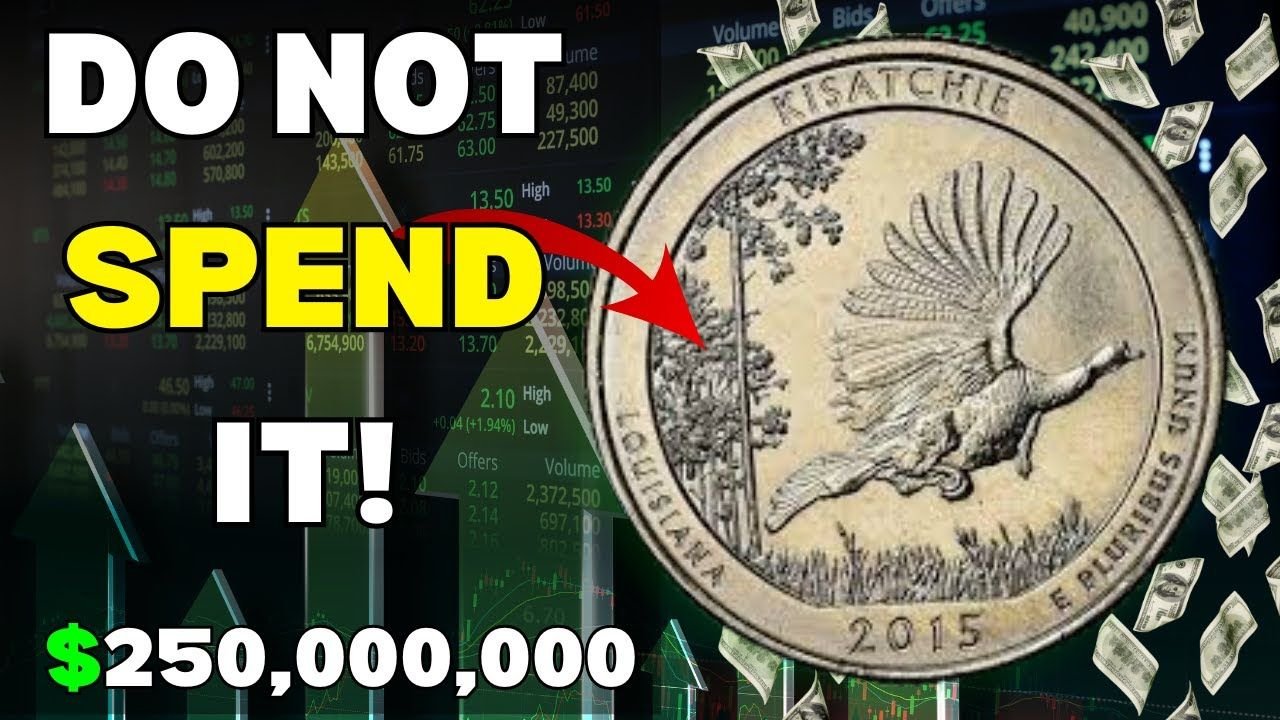Hidden Treasures in Your Pocket Change
State quarters, minted from 1999 to 2008, have become a collector’s dream, with some fetching thousands of dollars at auction. These coins, part of the U.S. Mint’s 50 State Quarters Program, feature unique designs for each state, but rare errors and high-grade conditions make certain ones stand out. A 1999 Pennsylvania quarter recently sold for $10,200, sparking excitement among collectors. With billions of these quarters in circulation, checking your change could lead to a surprising payday.
What Makes State Quarters Valuable?
The most valuable state quarters often have minting errors, low mintages, or pristine condition. Errors like doubled dies, extra design elements, or experimental alloys used for testing increase a coin’s worth. For example, some 1999 quarters were struck on Sacagawea dollar planchets, giving them a gold tint and boosting their value. High-grade coins, graded MS67 or above by services like PCGS, are also rare and prized. The combination of these factors can turn a 25-cent coin into a small fortune.
| Feature | Details |
|---|---|
| Program Years | 1999-2008 |
| Total Minted | 34.3 billion |
| Key Value Factors | Errors, high grades, experimental alloys |
| Top Auction Price | $10,500 (1999-P Connecticut, MS69) |
Top 10 Valuable State Quarters to Look For
Some state quarters stand out for their rarity and high auction prices. The 1999-P Delaware Spitting Horse quarter, with a die crack near the horse’s mouth, sells for $10 to $5,000. The 2004-D Wisconsin Extra Leaf quarter, with an extra corn husk, fetched $6,000 in MS67. A 1999-P Connecticut quarter on an experimental alloy sold for $10,500. Other notable coins include the 1999-P Pennsylvania (MS67, $10,200), 2003-P Illinois (MS68, $595), 2008-D New Mexico with a doubled die error ($1,500), and 2005-P Minnesota with an extra tree ($1,000). The 1999-S Pennsylvania proof silver quarter can reach $50, while the 2004-P Texas Grease Strike Through error hit $10,000. The 2009-D District of Columbia doubled die quarter rounds out the list, valued up to $4,000.
| Coin | Value Range | Key Feature |
|---|---|---|
| 1999-P Delaware | $10-$5,000 | Spitting Horse error |
| 2004-D Wisconsin | Up to $6,000 | Extra Leaf error |
| 1999-P Connecticut | Up to $10,500 | Experimental alloy |
| 1999-P Pennsylvania | Up to $10,200 | High grade (MS67) |
| 2003-P Illinois | Up to $595 | High grade (MS68) |
| 2008-D New Mexico | Up to $1,500 | Doubled die error |
| 2005-P Minnesota | Up to $1,000 | Extra tree error |
| 1999-S Pennsylvania | Up to $50 | Proof silver |
| 2004-P Texas | Up to $10,000 | Grease Strike error |
| 2009-D D.C. | Up to $4,000 | Doubled die error |
How to Spot a Valuable Quarter
You can find valuable quarters with a few simple checks. Use a magnifying glass to look for errors like extra leaves, doubled text, or die cracks, such as the “spitting horse” on Delaware quarters. Check the mint mark (“P” for Philadelphia, “D” for Denver, “S” for San Francisco) and year, focusing on 1999 coins or known error years like 2004 or 2005. Look for a gold tint, indicating an experimental alloy. Coins in uncirculated condition, with no wear, are worth more. Compare your finds to auction records on sites like eBay or consult a coin dealer for appraisal.
The Collecting Craze Continues
The State Quarters Program, which minted 34.3 billion coins, created a collecting frenzy that’s still alive today. Social media platforms like X are buzzing with tips on spotting rare quarters, and auction houses report growing demand for error coins. A 1999 Georgia quarter on an experimental planchet sold for $10,000, showing the potential in everyday change. Collectors value these coins for their unique designs and errors, making them a fun and potentially profitable hobby for beginners and experts alike.
Check Your Quarters Now
Before you spend your next quarter, take a close look. A rare error or high-grade coin could be worth thousands. The 1999-P Pennsylvania’s $10,200 sale and the 2004-D Wisconsin’s $6,000 price tag prove that big money hides in small change. Grab a magnifying glass, check for errors, and you might find a treasure. With collectors eager to pay for rare state quarters, your pocket change could be the key to a big payout.
